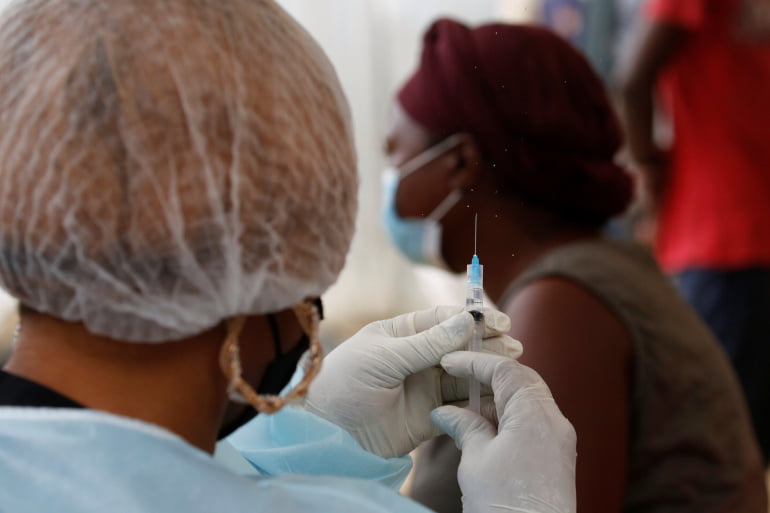Report: Mistrust Major Cause Of COVID-19 Vaccine Hesitancy

A REPORT on a survey with a sample size of 780 on COVID-19 vaccine hesitancy conducted in 39 districts in the country has revealed that 31 per cent of respondents refused to get vaccinated because they could not trust the safety of the vaccine.
Additionally, while some of the respondents (15.6 per cent) said they were not sure of the long-term side effects of the vaccine, only 0.6 per cent had not vaccinated based on religious beliefs.
Rationale
The survey sought to understand the situation of vaccine hesitancy in the respective districts where it was carried out.
Conducted by the Christian Health Association of Ghana (CHAG) under its COVID-19 and institutional capacity building (CRIB), the survey was funded by the Foreign, Commonwealth and Development Office (FCDO).
The FCDO sought to support the government’s response to the COVID-19 through strengthening Ghana’s health systems to maintain the delivery of essential healthcare services.
The report revealed that the North-East and the Savannah regions had high vaccine acceptor rates, while the Northern and the Western regions had the least.
“The Ahafo and the Greater Accra regions showed very high initial hesitancy and could be attributed to the fact that Ahafo was the last region to record a COVID-19 case in Ghana, while Greater Accra had a preponderance of misinformation, ” it said.
Source Of Information On COVID-19
The report further revealed that the primary sources of information among vaccine acceptors were local radio and television, followed by social media.
On the other hand, “among those hesitant to COVID-19 vaccination, majority of them would prefer television and radio as sources of information”.
“We found that among the unvaccinated, the second largest source of information was from family and friends. It presupposes that risk communication to address vaccine hesitancy must target family and friends,” it said.
Target
The report explained that the study had a standard questionnaire adapted from the UNICEF and the USAID COVID-19 vaccine hesitancy data collection tool and “this survey was conducted across 39 out of 40 targeted CRIB districts in 15 administrative regions in Ghana”.
“The survey targeted residents aged 15 years and above living in the 39 districts at the time of the study,” it explained.
It indicated that among the 780 respondents, 420 of them, representing 54 per cent, were females, while the remaining 46 per cent were males, adding that in all age groups, there were more female respondents than males.
According to the report, data were collected face to face using a structured questionnaire, during which the questions were deployed through a kobo collection toolbox.
A kobo toolbox is an open-source tool for collecting data using mobile device.
Measures
The report proposed, among others, that family and friends must be targeted as key messengers on the COVID-19 education, saying: “Importantly, the medium of communication that ought to be used for COVID-related education should be the local television, radio and WhatsApp, as they are preferred by majority.”
It admitted that the CRIB project contributed immensely to improving vaccine uptake in the districts that were beneficiaries of the project, raising the acceptance rate to 78 per cent, which was higher than the national average of 53.2 per cent.
The Deputy Executive Director of CHAG, Dr James Duah, explained that with the FCDO support, “we wanted to contribute to achieving the national target of vaccinating 20 million eligible Ghanaians.
“To contribute meaningfully to the national vaccination, we needed to know and understand vaccine hesitancy and the reasons for the hesitancy so that we can address those issues through education at the household level, communities, churches, mosques and schools,” he explained.
More Vaccination
It urged the CRIB project to continue its efforts to ensure the country achieved its 20 million vaccination target.
The report noted that there were 22 per cent of people who were still hesitant and called for more education.
“The education must target family and friends who are major influencers of changing the mindsets of hesitant individuals to vaccinate,” it said, stressing that the reasons assigned for the hesitancy must be addressed to convince more people to take the COVID-19 vaccine.
Source: Graphic Online








